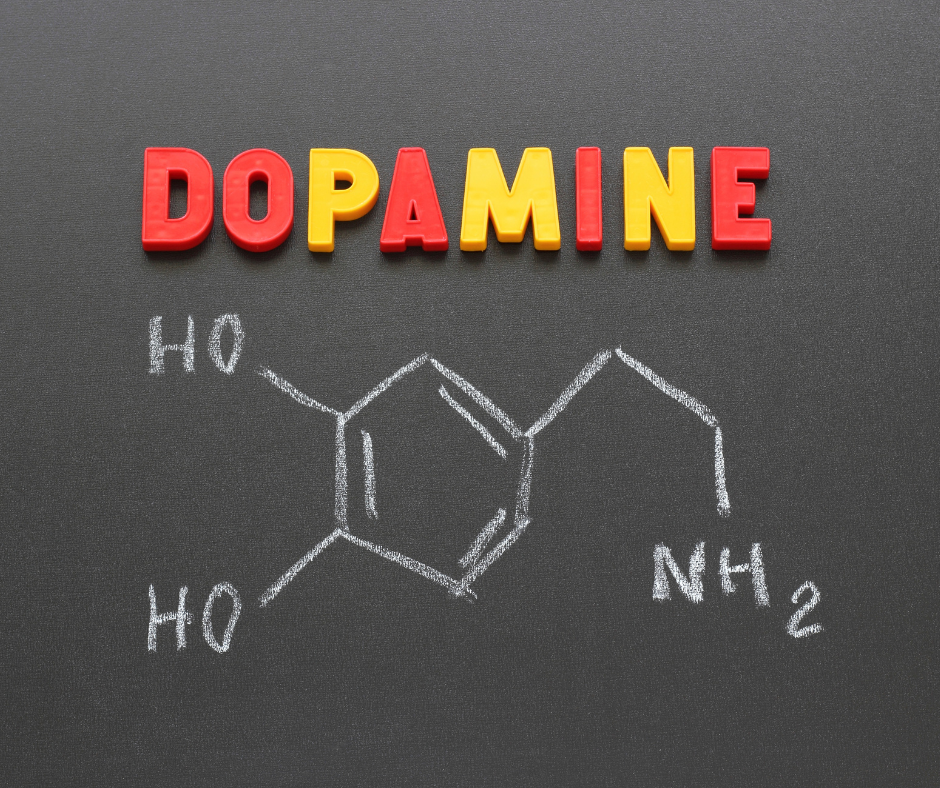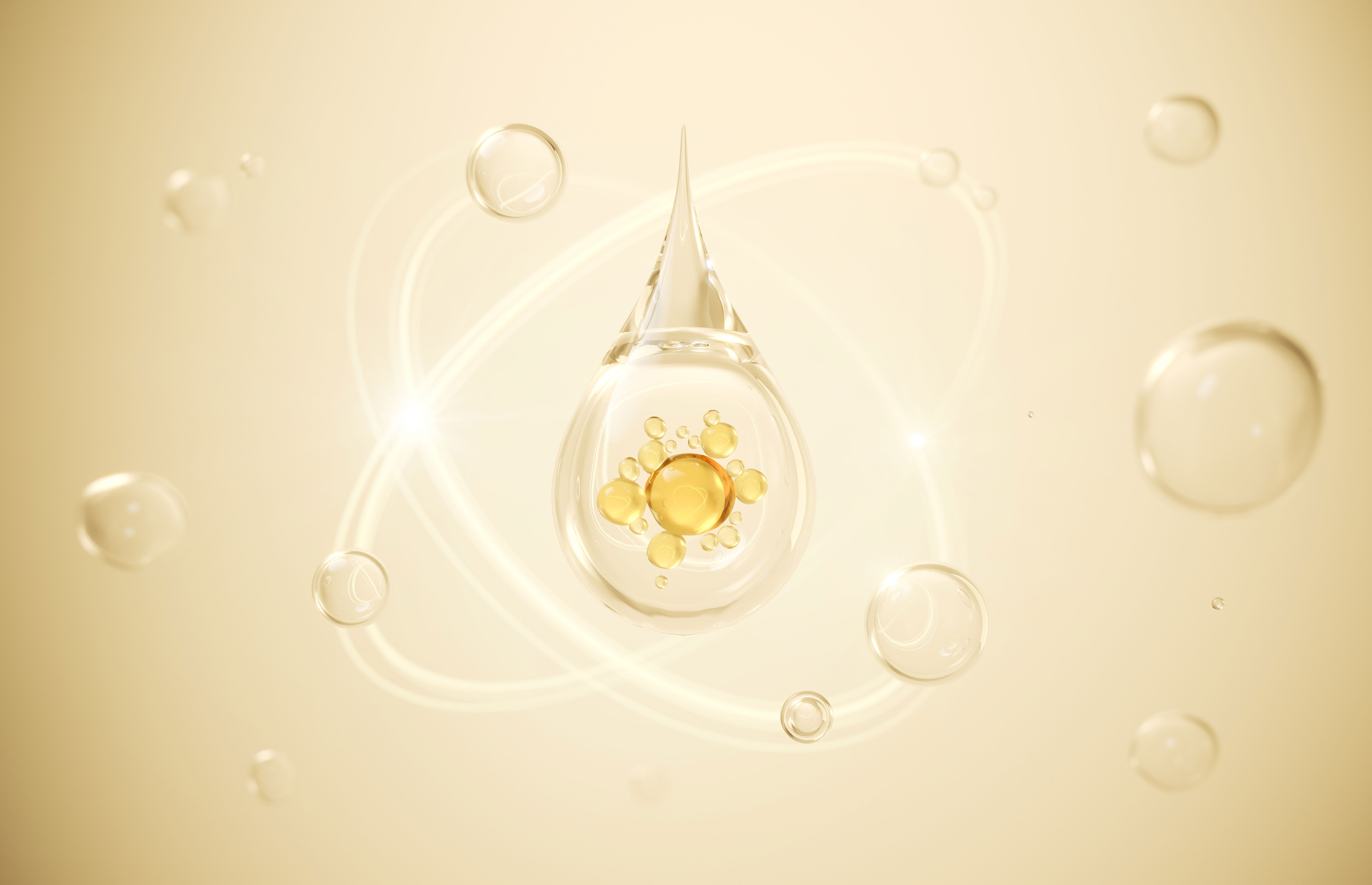Unveiling the Mysteries of Dopamine: Your Brain's Ultimate Motivator

Dopamine is often hailed as the "feel-good" neurotransmitter, but its role in our lives extends far beyond just making us happy. It's a powerful chemical messenger that plays a pivotal role in motivation, reward, and pleasure.
Understanding how dopamine works can empower you to harness its potential for a healthier and more fulfilling life.
What is Dopamine and When is it Released?
Dopamine is a neurotransmitter, a type of chemical that transmits signals in the brain and other areas of the body. It is released in response to a variety of stimuli and situations. The brain releases dopamine during activities that promote survival and reproduction, like eating delicious food, achieving a goal, or even anticipating a reward.
When you eat your favourite meal or complete a challenging task, your brain floods with dopamine. This release reinforces the behaviour, encouraging you to repeat it. It’s all about motivation and reward – dopamine helps you pursue things that bring pleasure and satisfaction.
Where is Dopamine Released From?
Dopamine is primarily produced in the brain in areas such as the substantia nigra and the ventral tegmental area (VTA) - midbrain. From there, it is released into several pathways, with the most notable being the mesolimbic pathway, which is often associated with the pleasure and reward system.
How Long Do the Effects of Dopamine Last?
The effects of dopamine can be immediate and short-lived or longer-lasting, depending on the context and the individual. When dopamine is released in response to a sudden event, like winning a game or eating a piece of chocolate, the effects are usually transient.
However, continuous activities that involve long-term goals, such as pursuing a career or nurturing a relationship, can lead to more sustained dopamine activity over time.

What Causes Dopamine to Release?
Dopamine is released in response to:
- Rewards: Positive reinforcement from actions, such as eating tasty food, socialising, or achieving goals, triggers dopamine release.
- Novelty: New and unexpected stimuli can lead to a surge of dopamine, driving curiosity and exploration.
- Anticipation: Just thinking about a pleasurable event can cause dopamine release, motivating us to seek it out.
- Exercise: Physical activity boosts dopamine levels, enhancing mood and motivation.
Effects of Dopamine on the Body
Dopamine influences many aspects of our physiology and behaviour, including:
- Mood: It plays a significant role in how we feel pleasure and happiness.
- Motivation: Dopamine drives us to pursue goals and rewards.
- Cognition: It enhances attention, memory, and learning.
- Movement: Dopamine is essential for coordinating smooth and controlled muscle movements.
- Sleep: It helps regulate the sleep-wake cycle and influences alertness.
Activities That Boost Dopamine Release
To naturally boost your dopamine levels, engage in activities such as:
- Exercise: Regular physical activity, like walking, running, or dancing, increases dopamine production.
- Listening to Music: Enjoying your favourite tunes can elevate dopamine levels.
- Meditation and Mindfulness: Practices that promote relaxation and focus can enhance dopamine activity.
- Accomplishing Tasks: Setting and achieving goals, even small ones, can trigger dopamine release.
- Eating a Balanced Diet: Foods rich in protein and antioxidants, like lean meats, fish, fruits, and vegetables, support dopamine production.
Understanding Dopamine Addiction
While dopamine is essential for motivation and pleasure, it can also lead to addiction when overstimulated by certain activities or substances.
Drugs like cocaine and methamphetamine artificially elevate dopamine levels, creating intense euphoria but also leading to dependency and tolerance over time.Dopamine addiction isn’t limited to substances.
Behaviours such as excessive gambling, video gaming, or social media use can also lead to a cycle of craving and dependency as they repeatedly activate the brain’s reward pathways.
Achieving a Natural Dopamine High
Here are some ways to achieve a healthy, natural dopamine boost without falling into the trap of addiction:
- Pursue New Hobbies: Engaging in new activities stimulates dopamine by introducing novelty and challenge.
- Practice Gratitude: Focusing on positive aspects of your life can boost dopamine and enhance well-being.
- Spend Time in Nature: Being outdoors and experiencing natural beauty can increase dopamine levels.
- Connect with Others: Social interactions and meaningful connections are powerful dopamine boosters.
- Set Realistic Goals: Breaking down tasks into manageable steps and celebrating small victories can keep dopamine flowing steadily.

Essential Oils to Boost Dopamine Levels and Enhance Well-Being
Essential oils can be a natural way to support dopamine production and overall well-being. While essential oils don't directly increase dopamine levels, some can help enhance mood, reduce stress, and improve focus, which are indirectly linked to dopamine regulation.
Here are some essential oils known to support dopamine production:
1. Rosemary
- Benefits: Rosemary is known for its ability to improve memory, focus, and mental clarity. It can stimulate the brain and enhance dopamine activity, helping to improve mood and motivation.
- Usage: Diffuse rosemary oil during study or work sessions to boost concentration, or dilute it with a carrier oil and apply to pulse points.
2. Peppermint
- Benefits: Peppermint oil is invigorating and can increase energy levels, which might help with dopamine release. It's also known for its ability to enhance cognitive function and reduce mental fatigue.
- Usage: Inhale directly from the bottle, add a few drops to a diffuser, or mix with a carrier oil for topical application to the temples or neck.
3. Frankincense
- Benefits: Frankincense has calming properties that help reduce stress and anxiety, which can support a balanced mood and healthy dopamine levels. It's also linked to improved focus and mental clarity.
- Usage: Use in meditation by diffusing the oil or applying it to the wrists and chest.
4. Lavender
- Benefits: Lavender oil is well-known for its calming and soothing effects. By reducing stress and anxiety, lavender helps create an environment that supports dopamine production.
- Usage: Diffuse before bed to promote relaxation, or add to a bath for a calming experience.
5. Lemon
- Benefits: Lemon essential oil is uplifting and energising. It can help boost mood and combat feelings of depression or fatigue, which are often associated with low dopamine levels.
- Usage: Diffuse lemon oil to create an uplifting environment, or mix with a carrier oil for a refreshing massage.
6. Ylang Ylang
- Benefits: Ylang ylang is known for its ability to reduce stress and anxiety while promoting feelings of happiness and well-being. It can support dopamine levels by creating a sense of pleasure and contentment.
- Usage: Diffuse during relaxation sessions, or blend with a carrier oil and apply to the wrists and neck.
7. Basil
- Benefits: Basil essential oil has stimulating properties that can help improve mental alertness and reduce fatigue, which may support dopamine activity.
- Usage: Use in a diffuser while working or dilute with a carrier oil and apply to the temples and behind the ears.
How to Use Essential Oils for Dopamine Support
- Diffusion: Add a few drops of your chosen essential oil to a diffuser to fill your space with its aroma.
- Topical Application: Dilute essential oils with a carrier oil (like coconut or jojoba oil) before applying them to the skin, particularly on pulse points or the back of the neck.
- Inhalation: Inhale directly from the bottle or place a few drops on a tissue and breathe deeply.
- Bath: Add a few drops of essential oil to your bathwater to combine relaxation with aromatherapy.
By incorporating these essential oils into your daily routine, you can create a supportive environment for dopamine production, helping you maintain a positive mood and mental clarity.
Conclusion
Dopamine is a vital neurotransmitter that influences many aspects of our lives, from motivation and reward to mood and cognition. By understanding its role and learning to cultivate it naturally, you can harness its power to improve your well-being and lead a more fulfilling life.
Remember, balance is key – enjoy the pleasures dopamine brings while being mindful of its potential pitfalls.
Download the full article (and Dopamine hacks) below